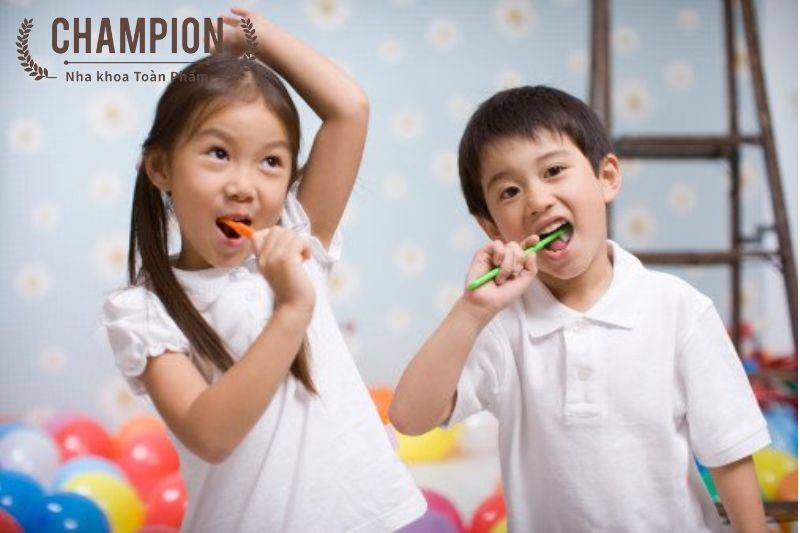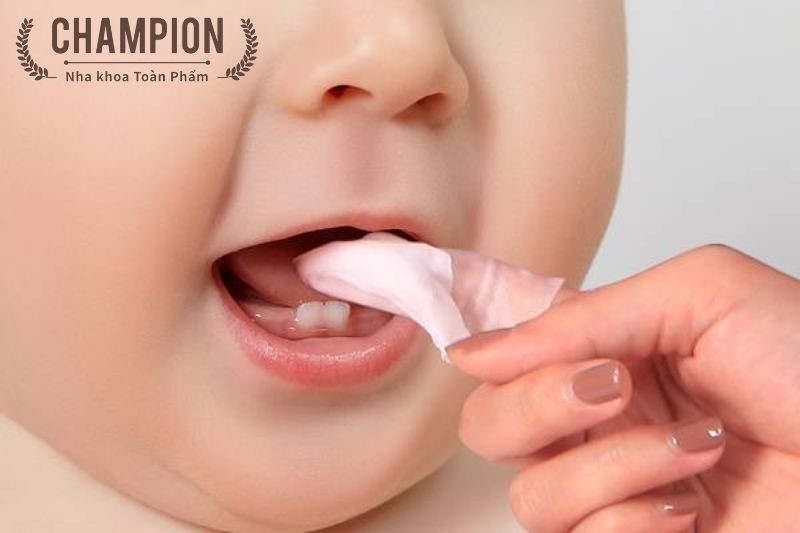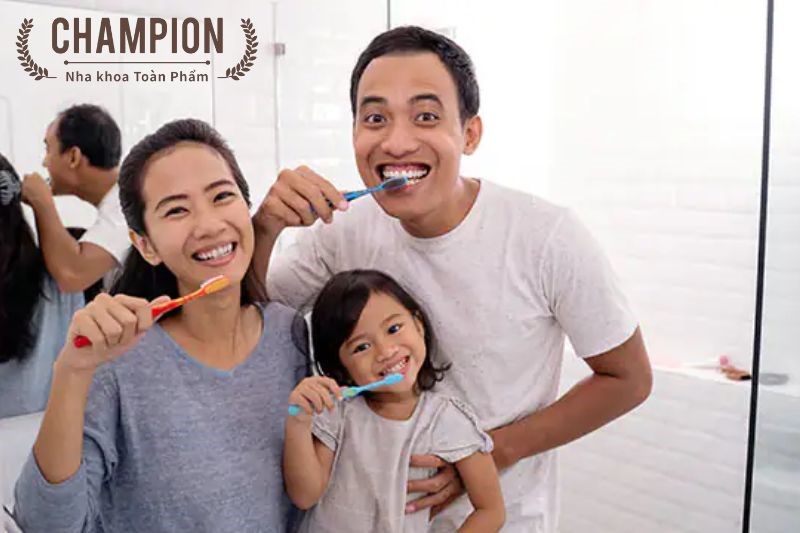Babies and toddlers are also at risk of tooth decay, just like older children and adults. Therefore, it is important to establish good oral hygiene habits for your child from an early age. By doing so, your child will be equipped with healthy teeth for a lifetime.
How to Brush Teeth for Babies
Even before your baby starts teething, it's important to gently clean their gums by wiping them with a soft, damp cloth once a day. Once your baby's milk teeth begin to erupt, you should use a specially designed toothbrush. Until the age of 18 months, it is sufficient to clean your child's teeth with plain water. This makes it easier for you to care for your child's oral hygiene and limits their exposure to toothpaste ingredients from an early age.
The duration of tooth brushing for your child will gradually increase. From a few seconds to when your child can comfortably brush for 2 minutes. At this stage, when your child is accustomed to tooth brushing, dentists recommend establishing a routine of brushing twice a day.
By the time your child is around 3 years old, you can start using toothpaste to clean their teeth. There are toothpaste options specifically developed for young children with lower fluoride content. Encourage your child to spit out excess toothpaste. If your child is unable to spit it out completely after brushing, continue using a small amount of low-fluoride toothpaste and gently wipe their mouth. This is important as you need to teach your child how to spit out toothpaste foam.
Note: Keep all toothpaste out of your child's reach. Some young children may enjoy the taste of toothpaste and may consume it if given the opportunity. Consuming toothpaste can lead to fluorosis, which is why it's crucial to keep toothpaste out of the reach of young children.

Guiding Teeth Brushing for Toddlers
From around 4-5 years old, children should start learning how to brush their teeth and take care of their oral hygiene on their own. According to statistics, young children usually know how to brush their teeth properly by the age of 8. Therefore, during this time, it's important to dedicate ample time to guide your child. If possible, be the one to brush and clean your teeth together with your child. Young children have excellent imitation skills.
Pay attention to the duration as well, aiming for a minimum of 2 minutes of brushing. Young children always need attention and care. Therefore, remind them to maintain oral hygiene twice a day. Also, ensure to replace their toothbrush every 3 months. This helps make the process of oral hygiene for your child as easy as possible.
Dental Flossing
At a certain age, around 2 and a half years old, teach your child how to use dental floss. Dental floss helps remove bacteria that cause tooth decay from between the teeth and promotes healthy gums. This can be a challenging tool for children to handle. Therefore, they need time to develop awareness and learn how to use it. In the beginning, you may only need to use it twice a week for the child to get accustomed to it. If you're concerned about the child causing harm to their gums, it is best for parents to assist. Remember to rinse their mouth with mouthwash for children after flossing.

>> See more: How To Take Care of Your Teeth with Braces
Introducing Oral Hygiene to Toddlers
If your toddler refuses to brush their teeth or has difficulty sitting still for two minutes, try the following suggestions to make oral hygiene easier:
- Consider using a battery-operated toothbrush to add novelty to their teeth cleaning routine.
- Sing nursery rhymes or play their favorite song while assisting them with brushing.
- Offer rewards every time your toddler allows you to brush their teeth for two minutes.
- Encourage your child to practice brushing their own teeth (under your supervision) to develop good oral hygiene habits from an early age. Some toddlers who are just learning to walk prefer independence, so it's best to let them use their own toothbrush while you use a separate one, taking turns brushing.
- Make brushing teeth fun for your toddler. If they misbehave or resist, gently instruct them instead of scolding. If needed, consult your dentist for advice.

Setting a Good Example is Important
Children tend to mimic the behaviors of their parents. To demonstrate the importance of oral hygiene for children, it is crucial that you prioritize dental care as well. Engage in conversations with your child about the significance of having healthy teeth. When a child understands that teeth are meant to last a lifetime, they are more likely to take better care of them. Regularly visit the dentist to maintain your own oral health, as this will benefit your child as well.
Vietnamese & English: (028) 5411-2295
中文: (028) 5411-2297 172 Nguyen Luong Bang, Tan Phu Ward, District 7, Ho Chi Minh City.
Fanpage: Champion Dental Clinic 牙科診所
Zalo: Champion Dental Clinic
Youtube: Champion Dental Clinic 牙科診所
 Champion Dental Clinic
Champion Dental Clinic



